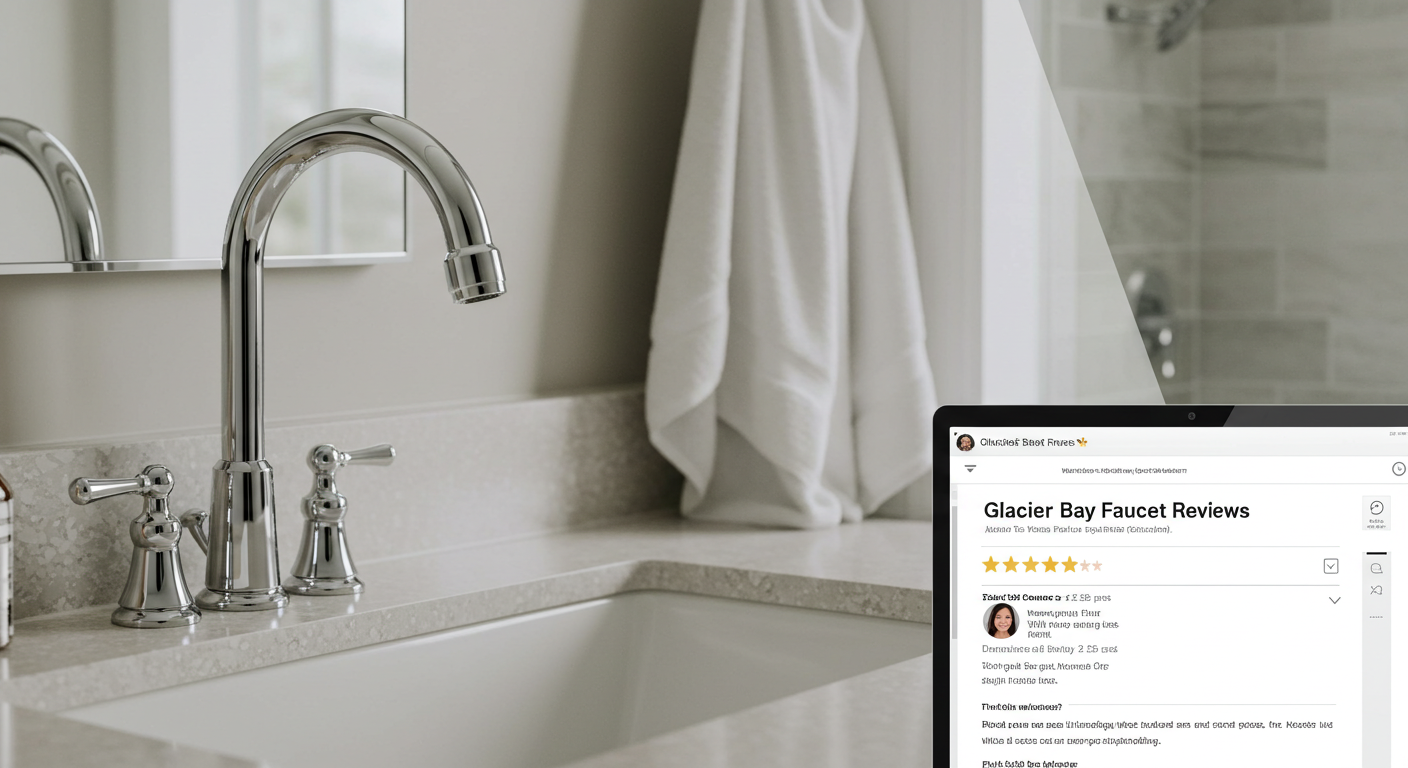Business
Vending Machine Business for Sale: Guide to a Profitable Turnkey Venture

In an age of automation and passive income, vending machines stand out as one of the most low-maintenance yet profitable business models. If you’ve been searching for a vending machine business for sale, you’re likely looking for a turnkey opportunity that delivers consistent cash flow, minimal overhead, and scalable potential.
Furthermore, the U.S. vending industry is projected to exceed $9 billion in 2025, making it a viable and promising investment path. But before jumping in, it’s essential to know what you’re buying—and how to make the most of it.
1. Understanding the Basics: What Is a Vending Machine Business?
A vending machine business involves owning, operating, and managing machines that dispense items such as snacks, drinks, hygiene products, or electronics. Revenue is generated through sales, and expenses typically include restocking, maintenance, and location rental (if applicable).
Business Models Include:
-
Single-owner/operator setups
-
Franchise vending businesses
-
Passive income models with contracted operators
-
Large-scale networks with route drivers
Importantly, the model you choose will depend on your time availability, investment capital, and business goals.
2. Why Buy an Existing Vending Machine Business?
Buying a vending machine business for sale offers many benefits over starting from scratch. In particular, it provides immediate cash flow and an established customer base.
Key Advantages:
-
Immediate Revenue: No waiting period for ROI.
-
Established Routes: Locations are already vetted and operational.
-
Known Performance Metrics: You can review sales history.
-
Trained Staff (Optional): Some businesses come with drivers or technicians.
-
Turnkey Operation: Equipment, locations, and contracts are often included.
Therefore, this investment model significantly reduces the learning curve for new entrepreneurs.
3. What to Look for in a Vending Machine Business for Sale
Not all vending businesses are created equal. Consequently, due diligence is critical when evaluating a potential purchase.
Factors to Consider:
-
Number and Type of Machines: Snack, beverage, combo, specialty
-
Machine Condition: Age, technology (card readers, touch screens)
-
Gross and Net Revenue: Look at monthly averages
-
Operating Expenses: Restocking, fuel, repairs, commissions
-
Machine Locations: High-traffic, secure, and stable contracts
-
Supplier Relationships: Cost of goods and delivery frequency
-
Employee or Contractor Info: Roles, wages, schedules
By evaluating these factors, you’ll gain a comprehensive understanding of the business’s health.
4. Top Places to Find a Vending Machine Business for Sale
If you’re wondering where to begin your search, several reputable platforms and methods exist.
Online Marketplaces:
-
BizBuySell – The largest marketplace for small businesses
-
BusinessBroker.net – Offers detailed listings with financials
-
LoopNet – Good for brick-and-mortar locations that house machines
-
Craigslist or Facebook Marketplace – For local, smaller operations
Industry-Specific Platforms:
-
VendBizOpps.com
-
UsedVending.com
-
Franchise Direct (if you’re seeking franchise opportunities)
Additionally, you can work with a business broker to find off-market deals and negotiate better terms.
5. How Much Does a Vending Machine Business Typically Cost?
The cost of a vending machine business for sale varies significantly depending on the size, scope, and profitability of the operation.
Typical Price Ranges:
| Business Size | Estimated Price |
|---|---|
| 1–5 machines | $2,000 – $10,000 |
| 6–20 machines | $10,000 – $50,000 |
| 21+ machines (with routes) | $50,000 – $300,000+ |
Remember, businesses with documented earnings and long-term contracts command higher prices. Still, it may be well worth the investment for those seeking predictability.
6. Financing Your Purchase: What Are Your Options?
Fortunately, several financing methods exist for buying a vending machine business:
-
Small Business Loans (SBA)
-
Seller Financing
-
Personal Loans or HELOC
-
Business Line of Credit
-
Angel Investors or Partnerships
Of these, seller financing is particularly appealing, as it often includes flexible repayment terms and allows you to get started without heavy upfront capital.
7. What Questions Should You Ask Before Buying?
Due diligence goes beyond looking at numbers. Make sure to ask the seller:
-
Why are you selling the business?
-
What are the average monthly sales per machine?
-
What is the maintenance schedule?
-
Are the locations under contract?
-
What are the gross vs. net profits?
-
Are the machines paid off or leased?
-
What technology is currently used (cashless, telemetrics)?
The more you know upfront, the fewer surprises you’ll encounter later.
8. Legal and Licensing Considerations
Just like any other business, a vending operation must comply with local, state, and federal regulations.
Requirements May Include:
-
Business license (LLC or sole proprietorship)
-
Sales tax permits
-
Health department permits (for food/beverages)
-
ADA compliance (for placement and accessibility)
Be sure to consult an attorney or licensing professional in your area to stay compliant and avoid costly fines.
9. Transitioning After Purchase: What Comes Next?
Once the purchase is complete, a smooth transition ensures continued profitability.
Your Immediate Action Plan:
-
Update business registrations and permits.
-
Meet with suppliers and location owners.
-
Train with the seller (if offered).
-
Audit machines and inventory.
-
Rebrand (if needed) and plan marketing.
Meanwhile, consider installing smart tech (like telemetry systems) to monitor inventory, machine health, and performance remotely.
10. Pros and Cons of Buying a Vending Machine Business
Pros:
-
Passive or semi-passive income
-
Low overhead
-
Scalable model
-
Recession-resilient demand
-
Flexible hours
Cons:
-
Machines may require frequent restocking
-
Weather and location changes can affect sales
-
Theft or vandalism risk
-
Technology updates needed for cashless trends
Even so, for the right buyer, the advantages often far outweigh the drawbacks.
11. How to Grow Your Vending Business After the Purchase
Buying is just the beginning. To scale, you’ll need a growth strategy.
Top Growth Tactics:
-
Add more machines in high-traffic areas
-
Negotiate better supplier pricing
-
Upgrade machines to accept cards and mobile pay
-
Offer more premium product lines (e.g., healthy snacks)
-
Build corporate partnerships with offices or schools
As a result, you’ll not only increase profits but also future-proof your business.
12. Trends Shaping the Vending Industry in 2025
To stay ahead, be mindful of evolving trends:
-
Cashless Transactions: Card and mobile payments are now standard.
-
Smart Vending Machines: IoT-enabled units track sales, alerts, and inventory.
-
Healthy Options: Demand for organic and low-sugar snacks is rising.
-
Micro Markets: Self-serve kiosks are replacing traditional machines in some offices.
-
Sustainability: Eco-friendly packaging and energy-efficient machines are trending.
By adapting early, you can gain a competitive edge.
13. Is Franchising a Better Option?
If you’re not ready to go solo, a vending franchise offers an alternative.
Pros of Franchising:
-
Proven business model
-
Brand recognition
-
Training and support
-
Equipment sourcing
However, franchises often require upfront fees and ongoing royalties. For some, this tradeoff is worth the structure it provides.
14. Success Stories: Real Entrepreneurs Who Bought Vending Businesses
Many everyday people have achieved financial freedom through vending.
-
Jason from Ohio started with 5 machines and now operates over 80.
-
Tasha from Florida turned a $12,000 investment into a $70,000/year income.
-
Carlos from Texas purchased an underperforming route, optimized it, and doubled revenue in 6 months.
Clearly, with strategy and dedication, vending can be a high-yield endeavor.
15. Final Thoughts: Should You Buy a Vending Machine Business for Sale?
If you’re looking for a business with:
-
Predictable income
-
Simple operations
-
Low employee needs
-
Strong growth potential
…then yes, a vending machine business for sale might be the perfect fit.
Just remember: due diligence is key, and your effort will directly impact your returns. But with the right setup, vending can serve as a stepping stone to financial independence.
Business
HDIntranet: The Complete 2025 Guide to Secure Workplace Communication Meta Description:

In today’s digital-first work environment, seamless internal communication is a necessity. That’s where HDIntranet steps in. Whether your business is large or small, the right intranet platform can make all the difference in how teams collaborate, share knowledge, and maintain productivity. HDIntranet has gained popularity as an all-in-one solution for managing internal workflows and communication securely.
This article explores everything about HDIntranet — from its core features and benefits to use cases and integration tips. If you’re searching for a better way to streamline your business operations, this guide to HDIntranet will provide exactly what you need.
What Is HDIntranet?
HDIntranet is a cloud-based intranet solution designed for enterprises and growing businesses to manage internal communication, documentation, and workflows. Unlike traditional communication tools that focus only on messaging or file sharing, HDIntranet centralizes important business functions such as HR, announcements, document management, task tracking, and collaboration tools.
Built with user experience in mind, HDIntranet is not only secure but also customizable. Its modern interface allows businesses to tailor features based on their organizational structure and needs.
Why Businesses Are Choosing HDIntranet
As remote work and hybrid offices continue to rise, businesses need smarter internal systems. HDIntranet answers this demand with a comprehensive suite of tools that foster engagement and efficiency. Here’s why companies are making the switch:
-
All-in-One Platform: HDIntranet combines communication, collaboration, and document control.
-
Security-Focused: Robust encryption and access controls keep internal data safe.
-
Customizable Layouts: Each department can design their section to meet their workflow.
-
Mobile Friendly: Stay connected on the go with the mobile-optimized version.
Businesses are finding that using HDIntranet eliminates the need for multiple third-party apps, reducing costs and simplifying IT management.
Key Features of HDIntranet
Understanding the features of HDIntranet gives insight into how it enhances workplace productivity. Here are some of the top functionalities users benefit from:
1. Centralized Communication
HDIntranet offers a hub where team members can post updates, announcements, and feedback. Notifications are instant and can be customized by role or department.
2. Document Management
Users can upload, store, and organize documents with version control. Advanced search features make it easy to find files instantly.
3. Employee Directory
With a searchable employee directory, teams can quickly connect with coworkers based on name, department, or skills.
4. Task & Workflow Automation
Assign tasks, create workflows, and monitor progress — all within the platform. Automated reminders ensure deadlines aren’t missed.
5. HR & Onboarding Tools
New hires can complete onboarding processes within HDIntranet, including accessing employee handbooks, filling out HR forms, and learning company policies.
How HDIntranet Improves Internal Communication
When companies adopt HDIntranet, one of the first benefits they notice is improved internal communication. Traditional communication via scattered emails and unorganized chats often leads to missed information and lowered productivity. HDIntranet centralizes these interactions.
Here’s how it helps:
-
Ensures transparency by publishing company-wide updates.
-
Reduces email clutter by offering threaded discussions and message boards.
-
Enhances team collaboration through shared workspaces and project boards.
As a result, employees feel more connected, aligned, and informed — no matter where they are located.
HDIntranet and Remote Work: A Perfect Match
In the wake of global remote work trends, platforms like HDIntranet have become indispensable. It not only bridges the communication gap but also helps remote employees stay engaged. Some key benefits for remote teams include:
-
Access to all files and updates from any device.
-
Real-time communication and collaboration tools.
-
Secure login and data protection protocols.
-
Employee polls, feedback tools, and virtual bulletin boards.
HDIntranet makes the virtual workplace feel as connected as a physical office — if not more.
Integration Capabilities of HD-Intranet
One of the strengths of HDIntranet lies in its ability to integrate with third-party tools and software that businesses already use. Some popular integrations include:
-
Microsoft 365 and Google Workspace
-
Slack and Microsoft Teams
-
Trello, Asana, and Jira
-
Salesforce and HubSpot
-
Zoom and Google Meet
With these integrations, becomes a central platform that simplifies workflows without forcing businesses to abandon their preferred tools.
Is HD-Intranet Secure?
Security is a major concern for any digital platform, especially one handling sensitive company data. HD-Intranet employs strong encryption methods, regular security audits, and access control features that ensure only authorized personnel have access to certain areas or files.
Additional security features include:
-
Two-factor authentication (2FA)
-
Role-based access permissions
-
Audit trails and activity logs
-
GDPR and HIPAA compliance capabilities (depending on the business sector)
For organizations prioritizing data protection, HD-Intranet provides peace of mind.
Setting Up HD-Intranet: A Simple Process
Getting started with HDIntranet is straightforward. The onboarding process typically includes the following steps:
-
Sign-Up and Account Setup: Choose your subscription and create an account.
-
Company Branding: Customize the platform with your logo, colors, and company structure.
-
Feature Configuration: Enable modules that suit your company’s specific needs.
-
User Onboarding: Invite employees, set roles, and provide training if needed.
-
Launch and Monitor: Roll out the platform organization-wide and monitor engagement.
Customer support is also available during the onboarding phase to ensure a smooth transition.
Pros and Cons of Using HDIntranet
Pros
-
Comprehensive internal communication tools
-
High level of customization
-
Excellent mobile compatibility
-
Scalable for growing teams
-
Strong security protocols
Cons
-
May require initial training for non-tech-savvy users
-
Subscription pricing may vary based on the number of users
-
Customization options might feel overwhelming for small teams
Despite these minor drawbacks,remains a competitive solution in the internal communication space.
Conclusion: Is HDIntranet Right for Your Business?
If you’re seeking a powerful, secure, and flexible intranet solution, HDIntranet is certainly worth considering. From improving communication and collaboration to offering robust security features and third-party integrations, it covers all the essential needs of a modern business.
Whether you operate in a fully remote, hybrid, or traditional office model, provides the infrastructure necessary to keep teams connected and aligned. Its intuitive interface, powerful tools, and scalable options make it suitable for organizations of all sizes.
Business
Jeff Pinciak: Finance Leader & Innovator

Early Life and Education
Jeff Pinciak formative years were marked by a strong academic foundation and athletic involvement. He attended Kingswood Oxford High School in West Hartford, Connecticut, where he excelled academically and was a standout athlete on the varsity football team, playing as a wide receiver and defensive back.
He pursued Jeff Pinciak higher education at the University of South Carolina’s Moore School of Business, equipping himself with the skills necessary for a dynamic career in finance and business.
Professional Trajectory
Financial Sector Endeavors
Jeff’s career in finance began with roles that honed his expertise in corporate finance and strategic planning. He served as an Analyst at Barclays Investment Bank and later as an Associate in the Transportation and Infrastructure Group at Wells Fargo, gaining valuable experience in mergers and acquisitions and infrastructure investments.
He further expanded his financial acumen at The PFM Group, focusing on public financial management and investment strategy.
Leadership in Private Equity and Strategic Finance
Transitioning into private equity, Jeff Pinciak demonstrated a keen ability to enhance business value. His roles involved evaluating businesses, improving operations, and driving growth, leading to successful outcomes for investors and companies alike.
Notably, as CFO of PartnerCare, he played a pivotal role in strengthening the company’s financial foundation, showcasing his strategic leadership in the healthcare sector.
Jeff’s passion for technology is evident in his efforts to integrate AI-driven financial tools, cloud-based platforms, and automated systems into business operations, enhancing efficiency and competitiveness.
Beyond finance, he has made significant contributions to the creative industry, inspiring artists and innovators through collaborations that merge visual art with digital innovation.
Community Engagement and Philanthropy
A firm believer in giving back, Jeff actively supports local causes, educational programs, and mentors young professionals. His philanthropic efforts extend to promoting STEM education and supporting underprivileged communities, reflecting his commitment to social responsibility.
Leadership Philosophy
Jeff’s leadership style is characterized by collaboration, adaptability, and a people-first approach. He fosters strong work cultures by encouraging open communication, offering mentorship, and promoting diversity and inclusion.
Future Outlook
Looking ahead, Jeff aims to continue integrating advanced AI solutions into financial systems, mentor emerging professionals, and expand his philanthropic initiatives, particularly in sustainable finance technology.
Conclusion
Jeff Pinciak’s multifaceted career reflects a blend of financial expertise, technological innovation, creative vision, and community commitment. His journey serves as an inspiration for professionals across industries, exemplifying how strategic leadership and a passion for positive impact can drive meaningful change.
Business
Iowa Secretary of State Business: Entrepreneurs and Business Owners

Créer ou gérer une entreprise en Iowa nécessite de suivre plusieurs démarches juridiques et administratives. L’une des agences gouvernementales de l’Iowa avec laquelle vous serez amené à interagir est la Secrétairerie d’État. Cet office est la source principale d’enregistrements d’entreprises, Iowa Secretary of State Business de conformité des sociétés et de tenue des dossiers publics dans l’État.
De plus, que vous fondiez une LLC, une corporation, un partenariat ou même une entreprise individuelle, saisir le rôle du Secrétaire d’État peut faciliter votre parcours entrepreneurial. Ainsi, ce guide complet est à votre disposition pour vous accompagner dans chaque étape, une à une.
1. Understanding the Role of the Iowa Secretary of State Business Services Division
A Central Hub for Business Operations
The Iowa Secretary of State Business Services Division acts as the official repository for all state business entities. It maintains and regulates corporate records, ensures compliance, and provides various business-related services.
Key Functions Include:
-
Business entity formation (LLC, Corporation, etc.)
-
Trademark registration
-
Certificate of Good Standing
-
Filing annual reports
-
UCC (Uniform Commercial Code) filings
-
Business name search tools
Clearly, this office plays a foundational role in the lifecycle of any business operating in Iowa.
2. How to Start a Business in Iowa through the Secretary of State
Step-by-Step Formation Process
To get started, you’ll need to choose the right business structure. Then, follow these steps:
Step 1: Choose a Business Name
Before anything else, visit the Business Entity Search tool on the Iowa Secretary of State website. This ensures your desired business name is available and not already in use.
Step 2: Select Your Business Structure
You can choose from:
-
LLC (Limited Liability Company)
-
Corporation
-
Nonprofit
-
Partnership
-
Sole Proprietorship (though not filed with the Secretary of State)
Each has different legal and tax implications, so consider your options carefully.
Step 3: File Formation Documents
You will need to file:
-
Articles of Organization (for LLCs)
-
Articles of Incorporation (for corporations)
These forms can be submitted online or by mail via the Fast Track Filing system.
Step 4: Pay the Filing Fee
Filing fees vary depending on entity type:
-
LLC: $50 (as of 2025)
-
Corporation: $50–$100
-
Nonprofit: $20
Step 5: Get Your EIN and Licenses
After your business is registered, apply for an EIN (Employer Identification Number) from the IRS and obtain any local or state business licenses.
3. Using the Fast Track Filing System
What Is It and Why Use It?
The Iowa Secretary of State has made business filings faster and more accessible through the Fast Track Filing system. This online portal allows real-time document submissions and processing.
Benefits of Fast Track Filing:
-
24/7 access
-
Quicker approvals
-
Document tracking
-
Email notifications
Not only is it efficient, but it also reduces paperwork and delays.
4. Conducting a Business Entity Search in Iowa
Why It’s Important
Before registering a business or entering into a contract, it’s crucial to verify the business entity’s legal standing. Fortunately, the Business Entity Search tool allows you to:
-
Check name availability
-
View filing history
-
Confirm current status (active, inactive, etc.)
-
Retrieve official documents
This tool is invaluable not only for new entrepreneurs but also for investors, partners, and legal professionals.
5. Filing an Annual Report with the Secretary of State
A Required Compliance Step
All active business entities (LLCs, corporations, nonprofits) must file an Annual Report with the Iowa Secretary of State.
Important Details:
-
Due Date: Between January 1 and April 1 of every odd-numbered year (2025, 2027, etc.)
-
Fee: $60 for online filing; $45 for paper submissions
-
Method: Online via Fast Track Filing or mailed forms
Failure to file may lead to administrative dissolution, so mark your calendar!
6. Getting a Certificate of Good Standing
What Is It?
A Certificate of Good Standing proves that your business complies with state regulations and is legally authorized to operate in Iowa.
When You Need It:
-
Applying for business loans
-
Opening bank accounts
-
Registering in another state
-
Attracting investors
You can request one through the Fast Track Filing system for a nominal fee.
7. Registering a Trade Name or DBA in Iowa
Doing Business As (DBA) Registration
If you plan to operate under a name different from your legal entity, you must register a Trade Name (DBA) with the county recorder, not the Secretary of State.
Steps Include:
-
Name search (to avoid conflicts)
-
Filing with county office
-
Paying applicable fees
Though it’s a local-level process, it’s vital for branding and banking purposes.
8. Foreign Entity Registration: Expanding to Iowa
Bringing Out-of-State Businesses into Iowa
If your company is already registered in another state but wants to operate in Iowa, you’ll need to file a Certificate of Authority with the Secretary of State.
What You’ll Need:
-
Certificate of Good Standing from your home state
-
Registered agent in Iowa
-
Filing fee (typically around $100)
This ensures your business is compliant and legally recognized in Iowa.
9. Uniform Commercial Code (UCC) Filings
Securing Business Transactions
The Iowa Secretary of State manages UCC filings, which are public records of secured transactions.
Common Uses:
-
Loan collateral records
-
Lease agreements
-
Creditor protection
Lenders and financial institutions often use this tool before extending credit.
10. Dissolving a Business in Iowa
When It’s Time to Close Up Shop
If you decide to shut down your business, it’s important to file for Voluntary Dissolution to avoid future legal or tax issues.
Steps Involved:
-
Settle all debts and obligations
-
File the Articles of Dissolution
-
Notify the IRS and cancel EIN
-
Close bank accounts and licenses
Proper closure ensures that you’re legally cleared and financially protected moving forward.
11. Contacting the Iowa Secretary of State Business Services
Get Help When You Need It
The Iowa Secretary of State offers several contact methods for inquiries.
Address:
Iowa Secretary of State
Business Services Division
Lucas Building, 1st Floor
321 E. 12th Street
Des Moines, IA 50319
Phone: (515) 281-5204
Website: https://sos.iowa.gov
Don’t hesitate to reach out—they’re there to help facilitate smooth business operations.
12. Common Mistakes to Avoid When Filing
It’s easy to make errors during registration or reporting. Here’s what to watch out for:
-
Using an unavailable or trademarked name
-
Missing deadlines for annual reports
-
Forgetting to appoint a registered agent
-
Failing to keep your mailing address up to date
Being meticulous from the start helps you avoid complications later.
13. Iowa Business Resources and Support
Beyond the Secretary of State, other helpful resources include:
-
Iowa Economic Development Authority (IEDA): For funding and grants
-
Iowa Small Business Development Centers (SBDC): For mentorship
-
Iowa Department of Revenue: For state taxes
-
Local Chambers of Commerce: For networking and community support
These organizations can significantly boost your business growth and compliance.
14. Why Entrepreneurs Love Doing Business in Iowa
Iowa se classe régulièrement parmi les États favorables aux affaires grâce à :
Coût de la vie peu élevé
Structure fiscale raisonnable.
Réglementations favorables aux affaires
Des secteurs agricoles, manufacturiers et technologiques robustes
Par conséquent, cet endroit offre un terreau fertile pour les startups comme pour les entreprises bien établies.
15. Future Trends for Iowa Businesses in 2025 and Beyond
En perspective, le climat des affaires en Iowa évolue pour s’adapter à :
Modèles de travail à distance et hybride
Transformation numérique
Investissements en énergies renouvelables
Innovations dans le domaine de la technologie agricole
Approvisionnement local et modèles d’affaires durables
Les entrepreneurs qui s’alignent à ces tendances seront en position favorable pour réussir.
Conclusion: Start and Grow with Confidence
Pour conclure, le Bureau des services aux entreprises du secrétaire d’État de l’Iowa dépasse le simple rôle de bureau d’enregistrement. C’est un partenaire essentiel pour démarrer, entretenir et développer votre entreprise en Iowa.
En apprenant à gérer les inscriptions, les rapports, la conformité et les clôtures via ce bureau, vous franchissez une étape importante vers votre réussite à long terme. Que vous créiez une nouvelle LLC, développiez une société ou protégiez votre marque, les instruments et ressources offerts par le Secrétaire d’État de l’Iowa peuvent faciliter votre parcours.
-

 Business8 months ago
Business8 months agoCoyyn.com Economy | Insights on Gig & Digital Economies
-

 Reviews8 months ago
Reviews8 months agoDelta Touch Faucet Reviews – (Buying Guide 2025)
-
Reviews8 months ago
Kraus Faucet Reviews – (Buying Guide 2025)
-
Reviews8 months ago
Pfister Faucet Reviews – (Buying Guide 2025)
-

 Reviews8 months ago
Reviews8 months agoGlacier Bay Faucet Reviews
-
Reviews8 months ago
Brizo Kitchen Faucet Reviews – (Buying Guide 2025)
-
Reviews8 months ago
Grohe Faucet Reviews – (Buying Guide 2025)
-
Reviews8 months ago
American Standard Colony Soft Pull-Down Review
